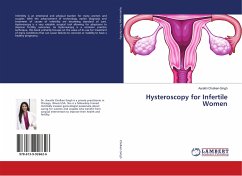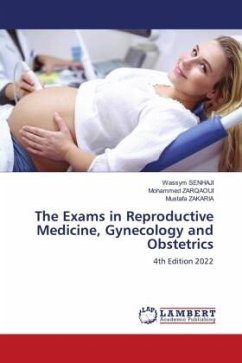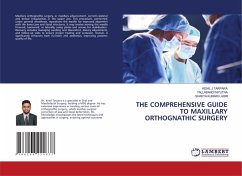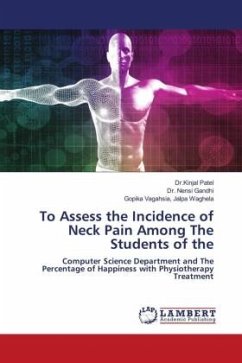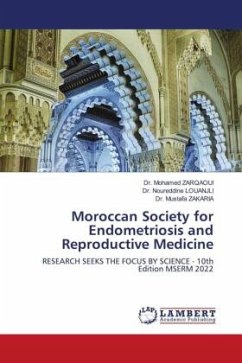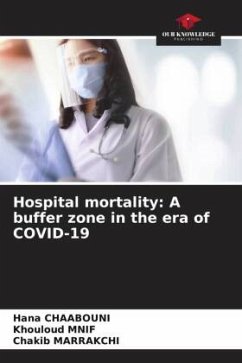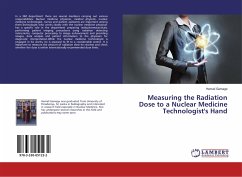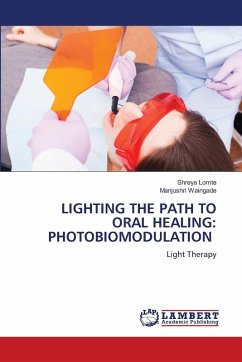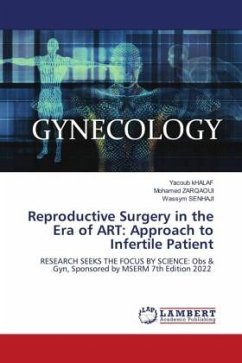
Reproductive Surgery in the Era of ART: Approach to Infertile Patient
RESEARCH SEEKS THE FOCUS BY SCIENCE: Obs & Gyn, Sponsored by MSERM 7th Edition 2022
Versandkostenfrei!
Versandfertig in 6-10 Tagen
40,99 €
inkl. MwSt.

PAYBACK Punkte
20 °P sammeln!
The development of Assisted Reproductive Technologies (ART), particularly in vitro fertilization (IVF), has dramatically changed the surgical approach to the infertile patient. At the same time, advances in minimally invasive surgery have allowed a broad range of pelvic procedures to be performed as outpatient surgery or in the office. As a result, surgical indications and approaches continue to evolve based on new information about the effects of pelvic pathology on infertility and new surgical and non-surgical technology. This course is a candid discussion by four reproductive surgeons who s...
The development of Assisted Reproductive Technologies (ART), particularly in vitro fertilization (IVF), has dramatically changed the surgical approach to the infertile patient. At the same time, advances in minimally invasive surgery have allowed a broad range of pelvic procedures to be performed as outpatient surgery or in the office. As a result, surgical indications and approaches continue to evolve based on new information about the effects of pelvic pathology on infertility and new surgical and non-surgical technology. This course is a candid discussion by four reproductive surgeons who specialize in infertility about the important and shifting roles of reproductive surgery in the era of ART and IVF. The course will describe the most recent advances and recommendations for the diagnosis and surgical treatment of common causes of infertility, including endometriosis, hydrosalpinx, fibroids, pelvic adhesions, tubal occlusion, intra-uterine pathology and polycystic ovary syndrome. Objectives At the conclusion of this course, the participant will be able to: 1) List the fertility effects of common gynecologic conditions, including leiomyoma, hydrosalpinx, endometriosis & uterine.



